
Musk’s Mars dream stopped 40 seconds before launch.
Tonight, millions of people on the earth are waiting for the launch of the starship. As the countdown gets closer and closer, everyone’s hearts are tightening nervously.

However, when there were still 40 seconds left, the countdown suddenly stopped.
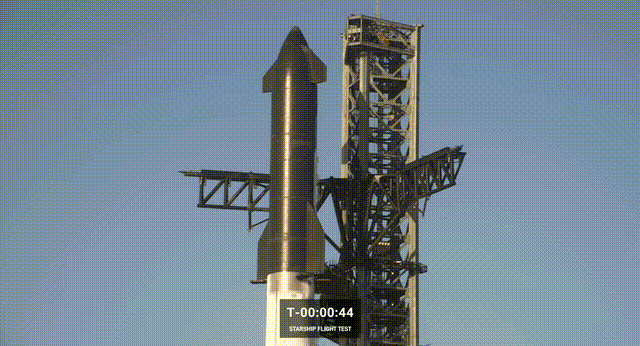
##First jumped to 39 seconds, and then went back again
In response, Musk said that the reason seemed to be that the pressure valve was frozen, and unless it started operating soon, there would be no launch today.
And the tweet that had just been pinned to the top two days ago was also taken down in despair.

#Now, his latest tweet is: "I learned a lot today. Unloading propellant now, will come back in a few days... ”

3 billion US dollars was not wasted, which really makes Academician Ma frightened.

Previously, Musk also predicted that the success rate of this launch would be 50% . Everyone thought it would fail, but they didn't expect it to be such a failure.
Of course, some optimistic netizens commented: If it doesn’t explode, it’s considered a success.
The sudden termination of the much-anticipated live broadcast also caused netizens to complain. It was almost like a computer system update.

"Originally I wanted to witness history, but it seems that it will have to be next time."

Some netizens jokingly called it, "Valves rule everything." (Valve dominates everything)

"You learned a lot, I spent 45 minutes today to see this kind of result."

In fact, before the launch, Musk had a premonition that it might be delayed for three days. I have to say, there is a bit of metaphysics in it.
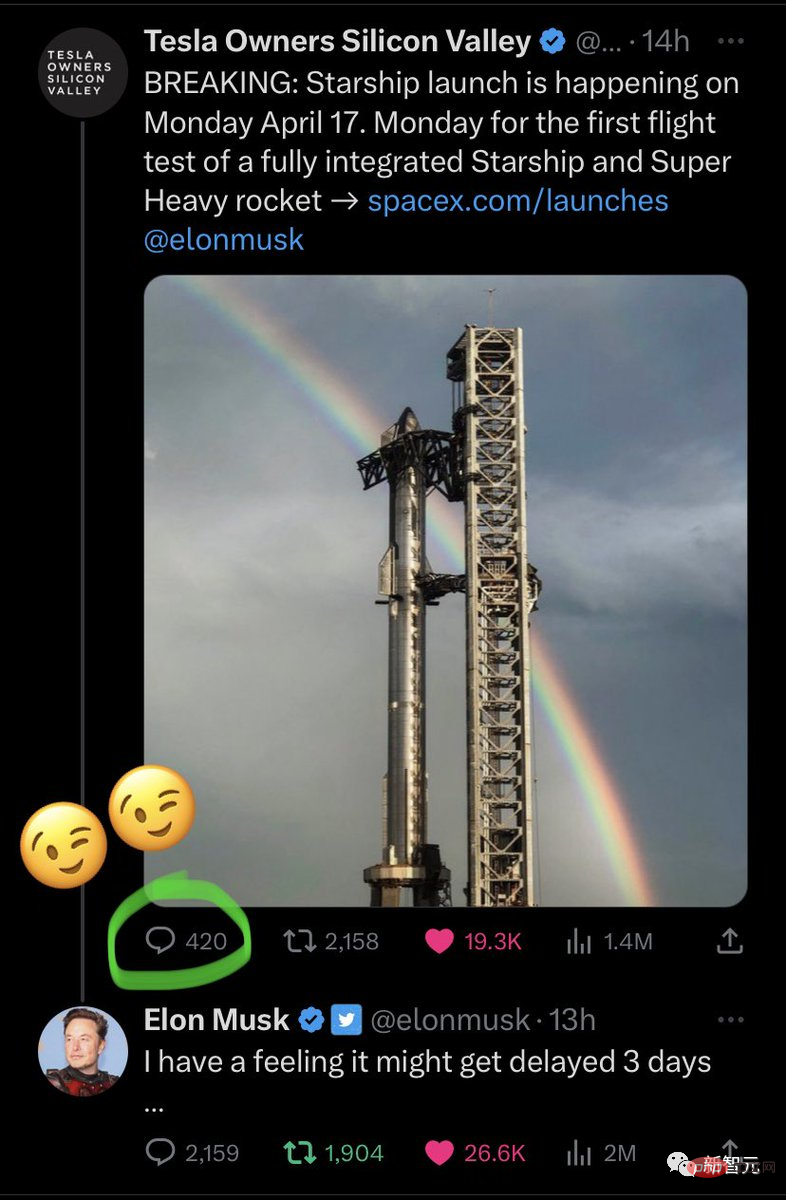
And netizens also took advantage of the trend and made emoticons with a re-launch date of 4.20.

More than twenty hours ago, everyone was flooded with the news that the starship was about to be launched.
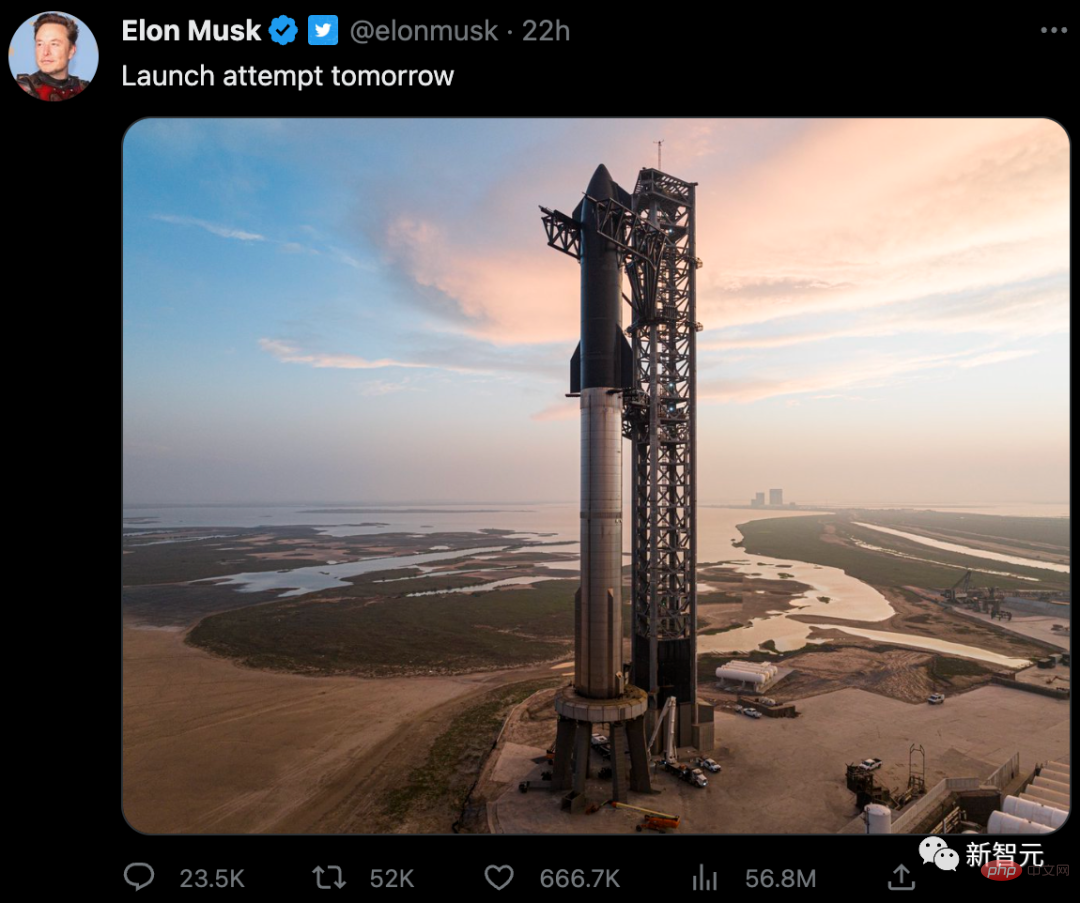
Musk burned $3 billion for this launch.
It is said that Musk believes that the success rate this time is 50%, which also implies that the starship is likely to explode like many "predecessors".
Musk jokingly said that since this is the first launch, as long as the launch pad is not blown up, it will be considered a success.

Can Musk’s dream of Mars come true? This launch is of great significance.
Several American astronomers predicted: "If the starship is successfully launched, it will greatly enhance our space capabilities and essentially change the way astrophysics missions are constructed. Later The launcher has always been severely restricted by the capabilities of the launcher, and there has been no substantial change in the past 20 years.” Either succeed spectacularly or fail spectacularly.
The launch time has been repeatedly postponed from the originally announced 8:00 pm Beijing time, just as Musk predicted. The reason is that "we are very cautious about this launch."
According to the plan, the rocket's propeller will be thrown into the Gulf of Mexico, and the spacecraft will land in the Pacific Ocean to await recovery. 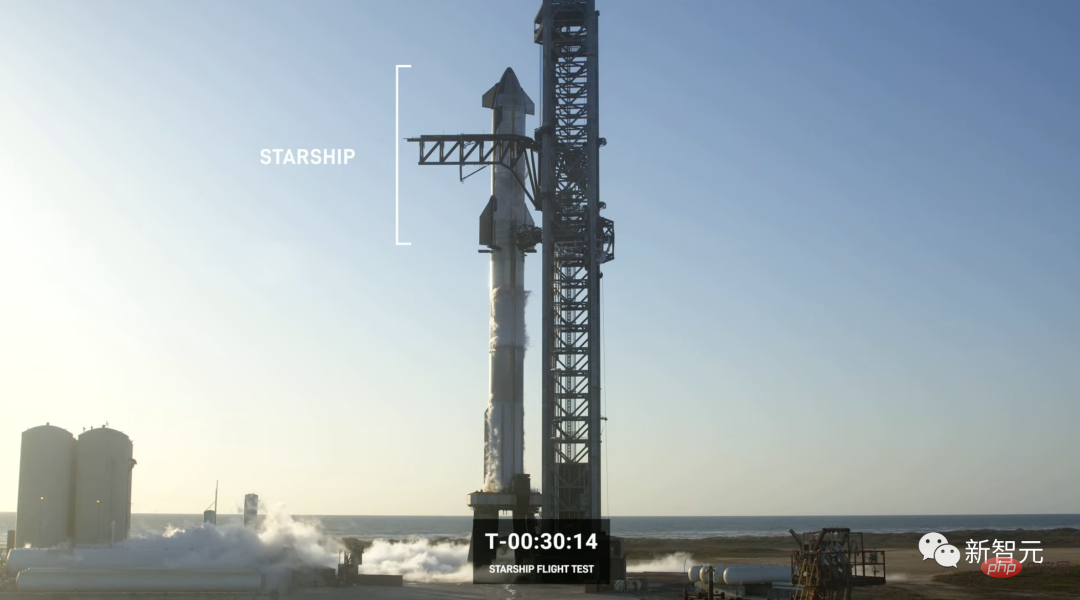
The world's most powerful starship, conjoined launch
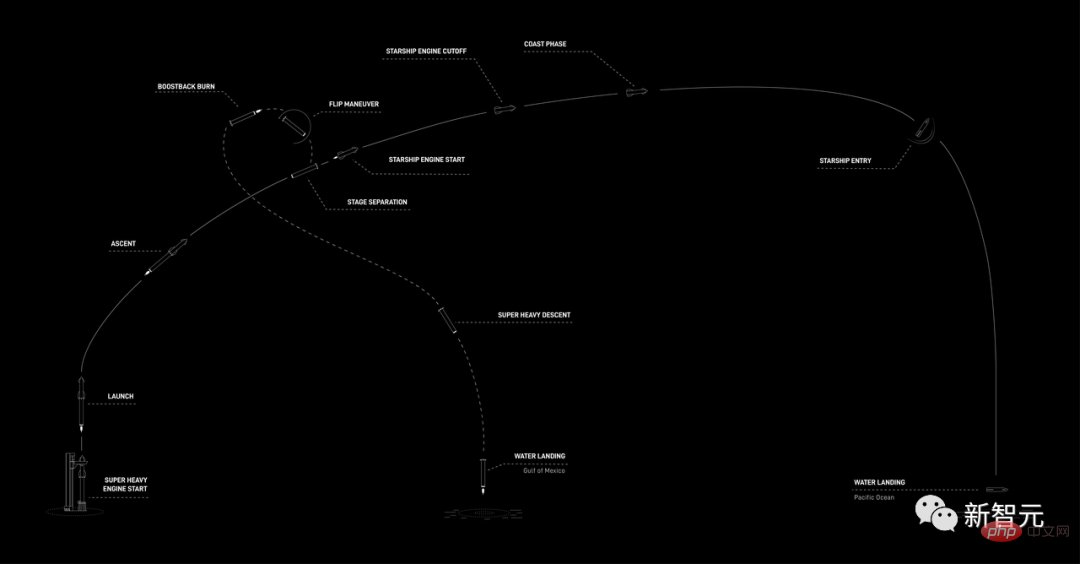
Just looking at the picture is enough to see its grandeur.
#According to the official introduction, the starship can be reused. The goal is to transport crew and cargo to Earth orbit and help people go to the moon, Mars, and further afield. 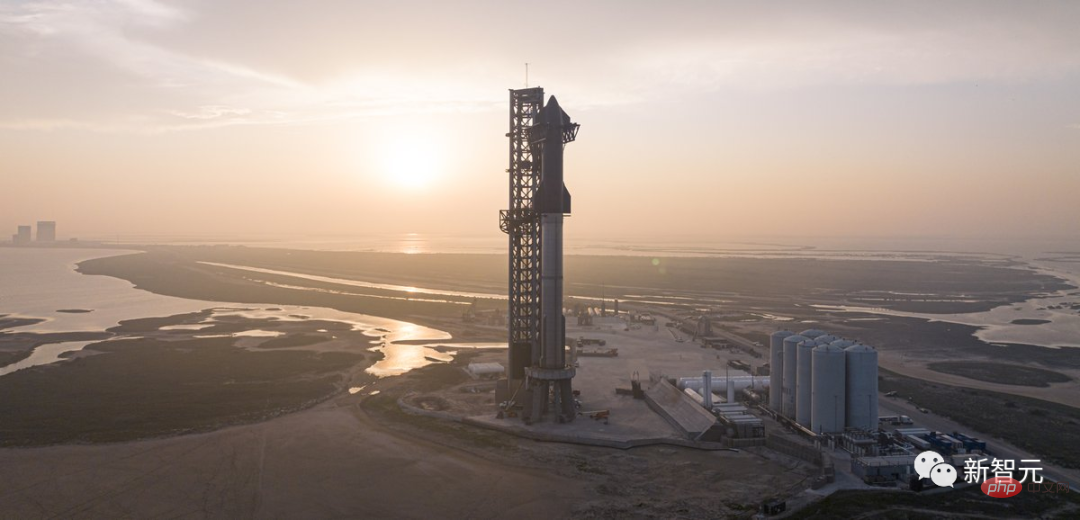
So far, the SpaceX team has completed multiple suborbital flight tests of the upper level of the starship at Starbase, demonstrating unprecedented control.
Tests have proven that the starship can prepare for landing in the subsonic stage, then restart the engine and flip to the vertical orientation.
In addition, the team also conducted multiple tests on the super-heavy rocket, including static ignition. The team also built the world's tallest rocket launch and reception tower, which is 146 meters high. 
Starship is 394 feet (about 120 meters) tall, making it the tallest rocket ever built by SpaceX, nearly 90 feet (about 27 meters) taller than the Statue of Liberty.
The "Starship" consists of two parts. One is a super-heavy booster called "Super Heavy", which is 70 meters high and has 33 Raptor engines to power the first-stage booster.
The other is the "Starship" spacecraft, which is 50 meters high and equipped with 6 "Raptor" engines and can carry cargo and personnel.
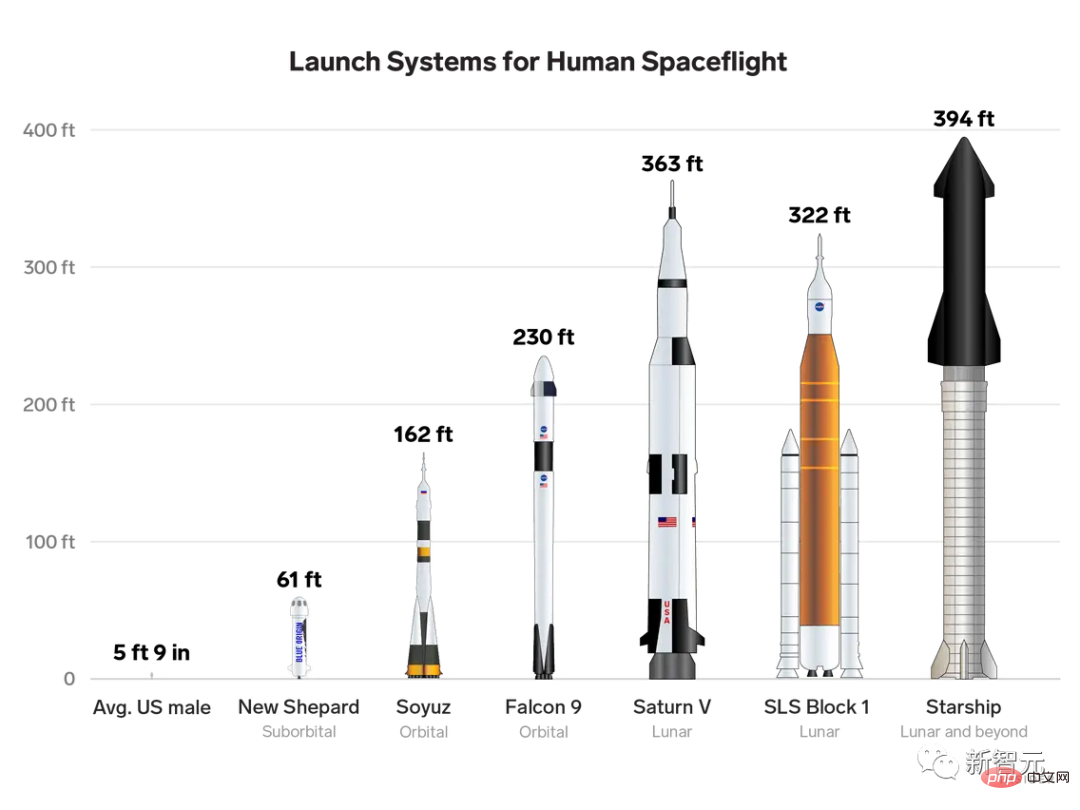
Starship is more powerful than NASA's SLS rocket, with nearly twice the thrust, and it is also reusable
Starships use methane as the main fuel. Compared with the traditionally used hydrogen, methane is cheaper and easier to process.
In addition, the most important point is that there is a trace amount of methane in the atmosphere of Mars, which will facilitate future starships to carry out Mars missions.
The design principle of Starship Super Heavy is the same as that of Falcon-9 rocket. Thirty-three Raptor engines power the first-stage booster, capable of producing 16 million pounds of thrust at full speed.
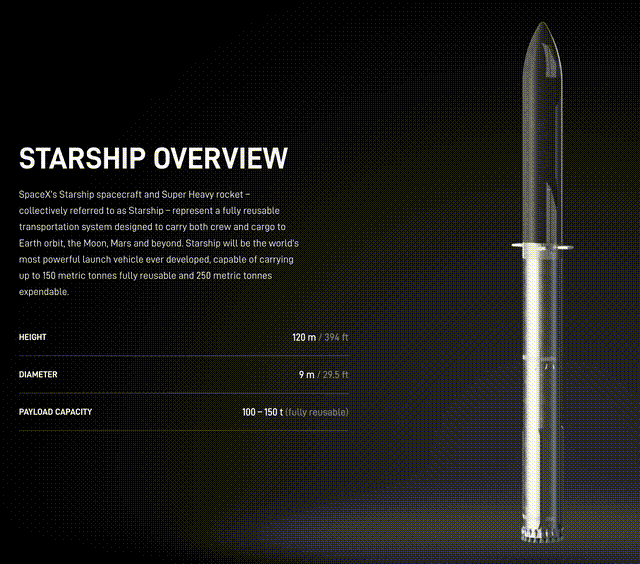
It can lift 150 tons of cargo for extraterrestrial travel, far more than the Saturn V that carried Apollo astronauts to the moon.
At the same time, Starship will also be fully reusable, and the Super Heavy booster will land like SpaceX's Falcon 9 rocket.
Musk has said that this will ensure that when the spacecraft goes to the moon or Mars, the rocket returns to land for refurbishment for another flight.
The starship carries Musk’s long-standing dream of immigrating to Mars.
He kept counting down on Twitter. The starship's cryogenic propellant was being loaded and there was still one hour left before launch.

Musk also pinned a tweet posted in September 2019 to the top, "Raging against the disappearance of light."
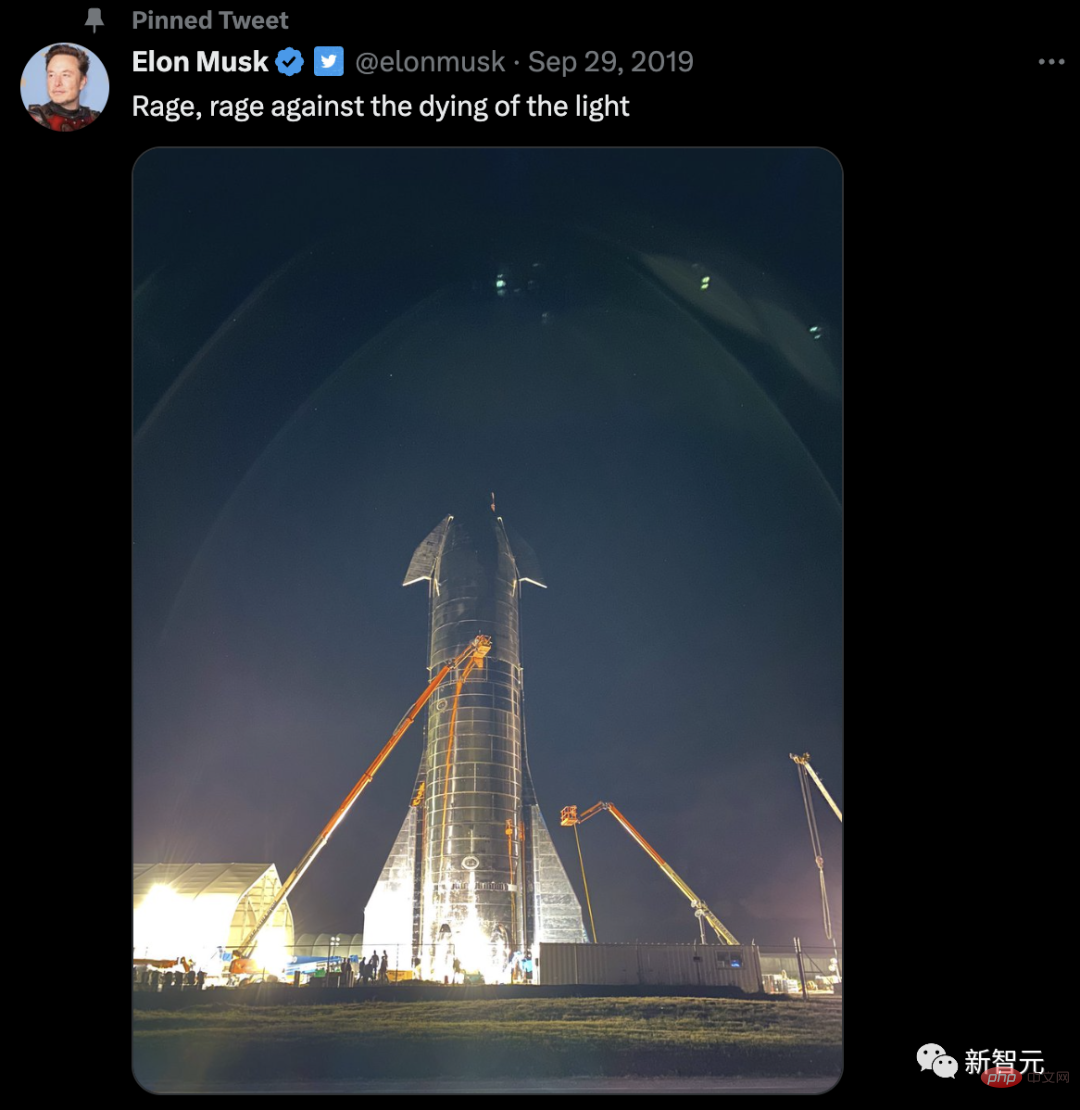
This sentence comes from a poem "Do Not Go Gentle into That Good Night" written by the British poet Dylan Thomas in the mid-20th century. .
In "Interstellar", when the spacecraft carrying the hope of human survival flew into space, Brand kept chanting this poem in the last moments of his life.
This is not only his belief, but more like a nightmare. He hopes that humans will fight hard to continue the human species.
What Musk has to do is to save mankind and continue human civilization!
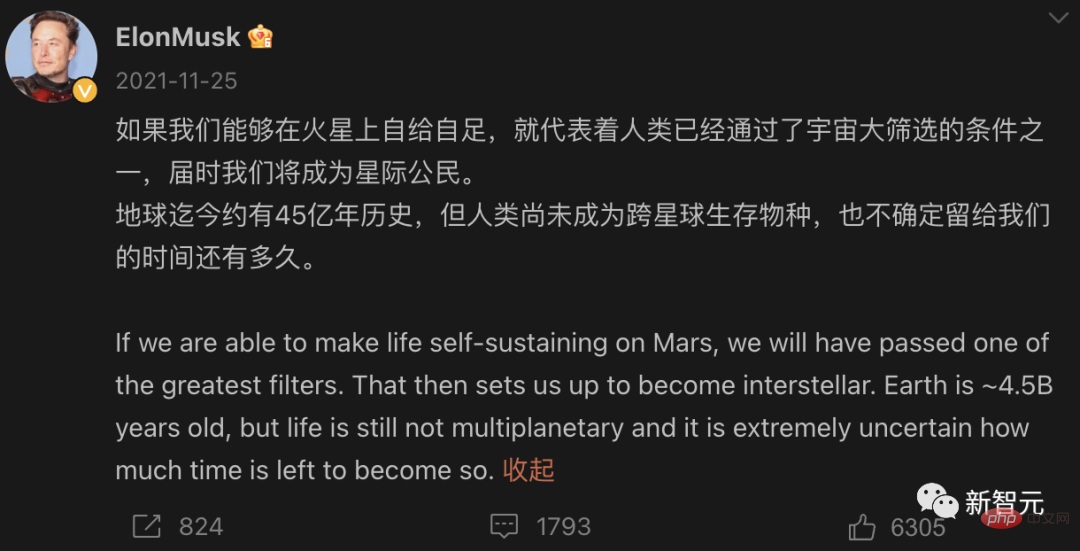
The only way is: immigrate to Mars.
The important goal of the starship is to help humans become a cross-planetary species and help humans cross over from earth civilization to space civilization.
Musk’s deep love for Mars. He spontaneously established his own Life to Mars Foundation to encourage various activities to explore Mars.
"If you're going to be buried somewhere, being born on Earth and dying on Mars is a cool thing."
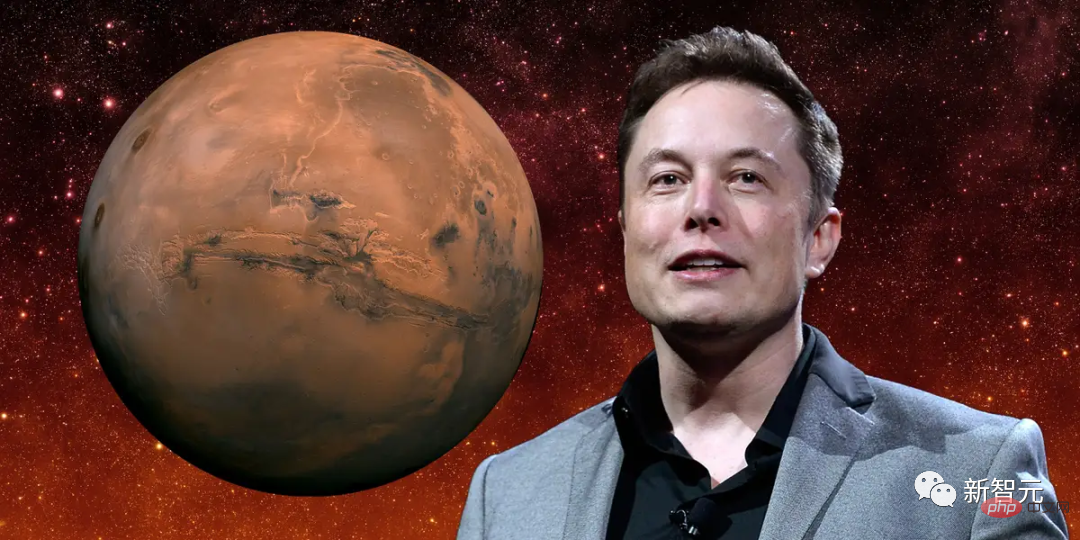
Previously, Musk has said that SpaceX plans to send humans to Mars in 2024 and establish a self-sustaining human colonial city by 2050.
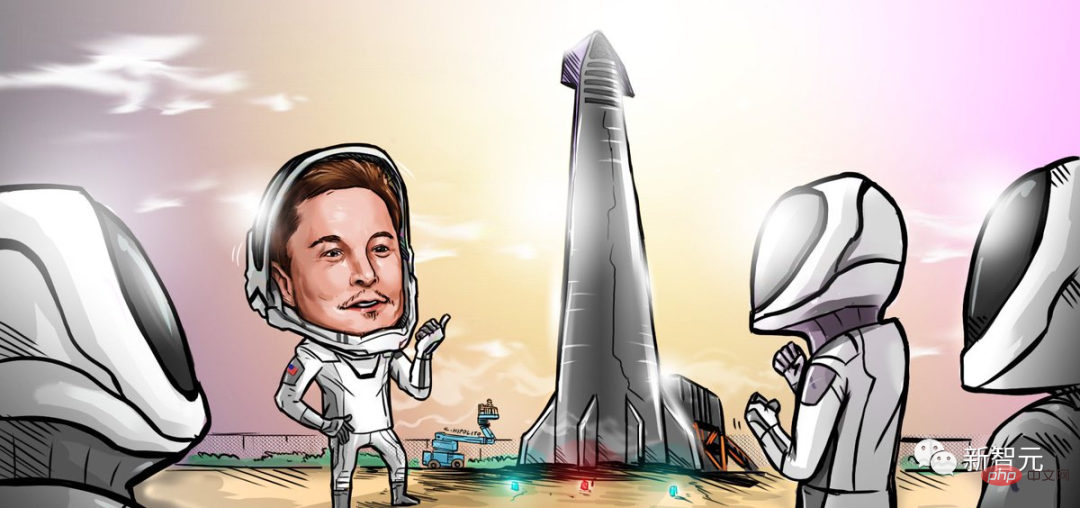
SpaceX’s plan to develop a heavy-lift launch vehicle can be traced back to 2005.
By 2012, a methane-oxygen engine began to be developed, and the program made its first public appearance in 2016.
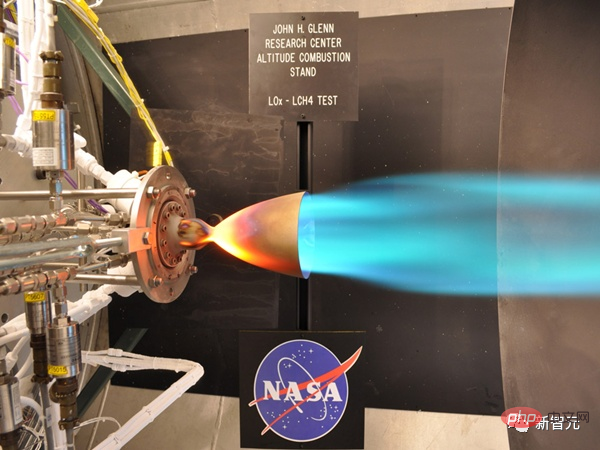
Starship development plans generally follow an iterative and incremental approach involving frequent prototype building, testing and refinement, both at low and high altitudes Flight testing and more.
In other words, more than ten years have passed since the idea was first raised to today's first launch.
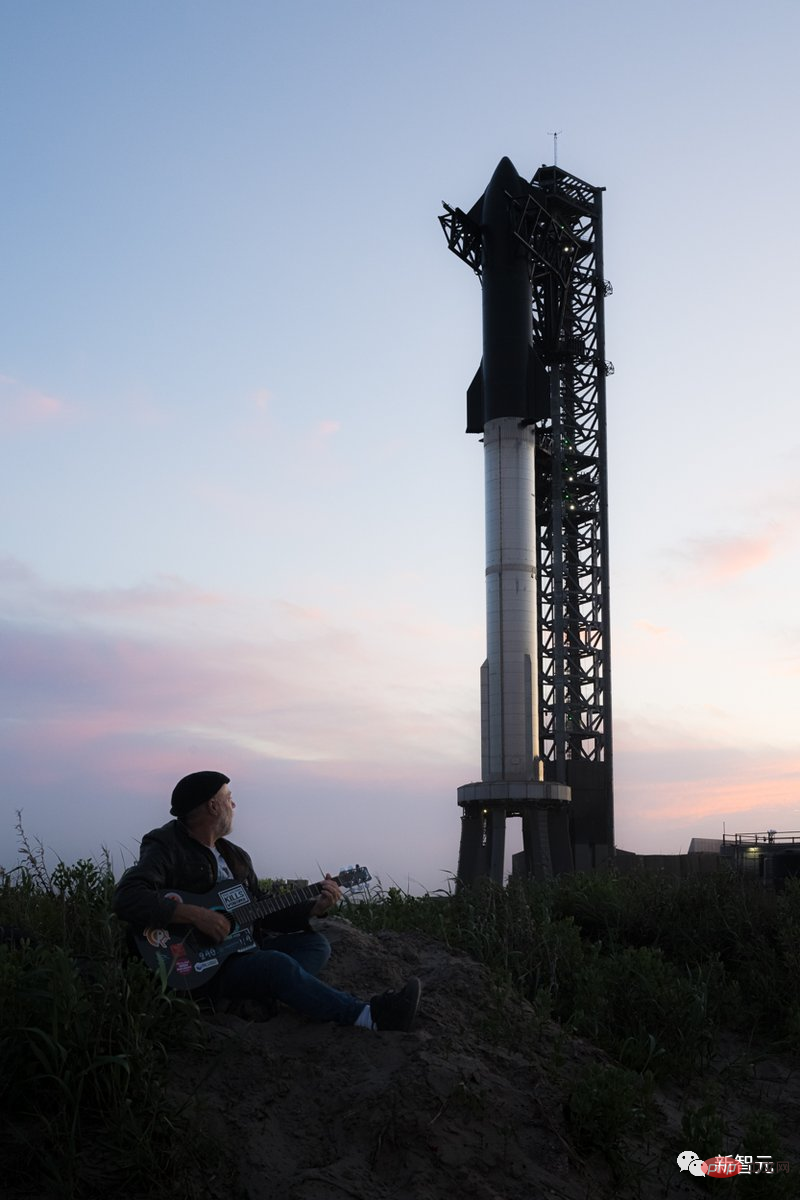
In November 2005, before SpaceX launched its first rocket, Falcon 1, Musk first mentioned a project called BFR heavy rocket concept. A 100-ton rocket can be launched into low Earth orbit.
And in July 2010, one year after the last launch of Falcon 1, SpaceX announced plans to continue to develop heavy-lift launch vehicles based on the Falcon rocket. Including various types of super-heavy launch vehicles.
Around 2015, Musk is expected to develop a Mars colonization transport aircraft, a rocket used for Mars colonization.
On September 26, 2016, the "Raptor" engine ignited for the first time. A few days later, Musk announced a proposed interplanetary transportation system launch vehicle using Raptor engines. The two-stage tanks are made of carbon composite materials and are used to store liquid methane and liquid oxygen.
In September 2017, at the 68th International Astronautical Congress, Musk proposed a revised plan for the interstellar transportation system, called the Big Falcon Rocket (BFR). The BFR will also be fully reusable but reduced in size, with a low Earth orbit capacity of 150 tons (330,000 pounds).
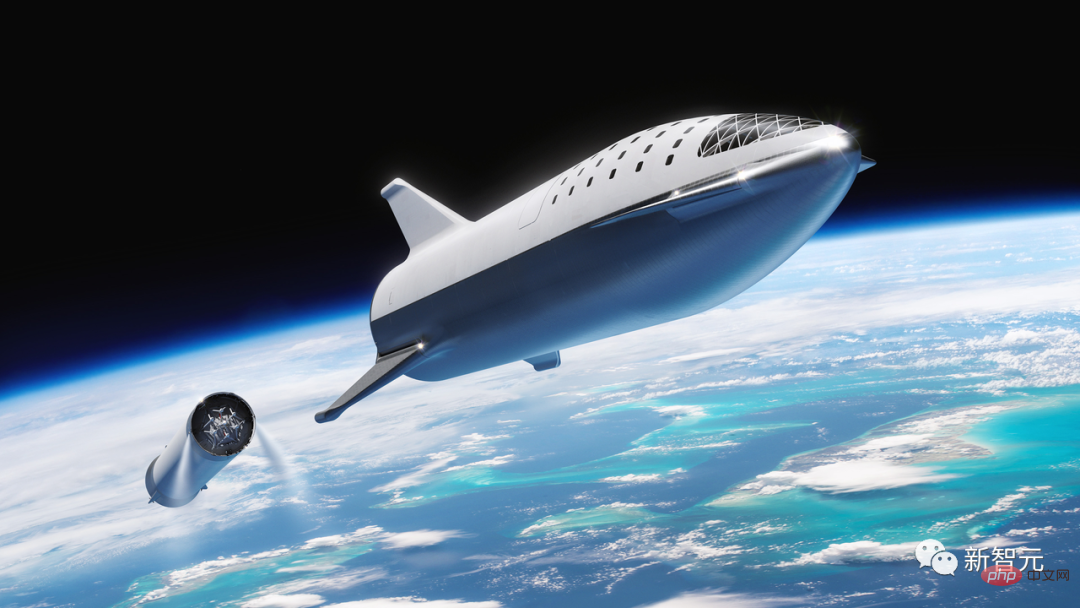
Variants of the BFR could launch satellites into orbit, resupply the International Space Station, land on the moon, and send humans to Mars. In April 2018, the mayor of Los Angeles confirmed plans to build a BFR rocket production facility at the Port of Los Angeles.
Previously, the starship had conducted several tests, allowing it to fly to an altitude of about 6 miles and then return to Earth.
SN8, SN9, and SN10 all failed to send, and accidents such as crashes and explosions occurred one after another.
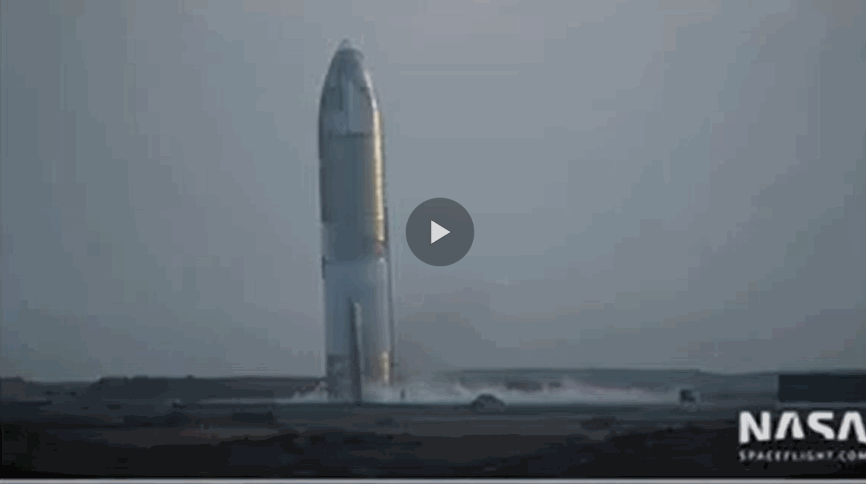
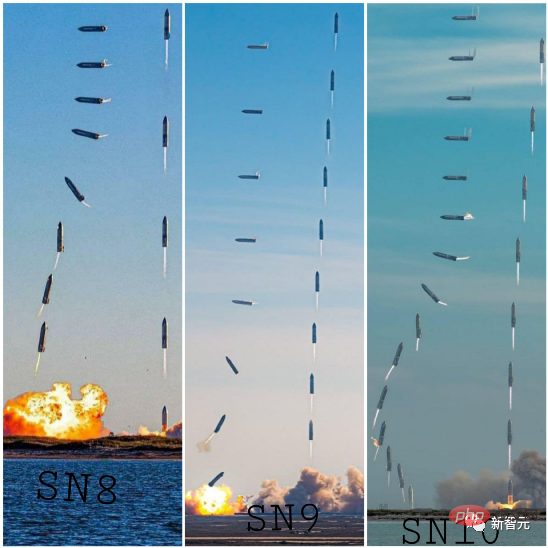
# In March 21, the SN11 prototype was blown to pieces.
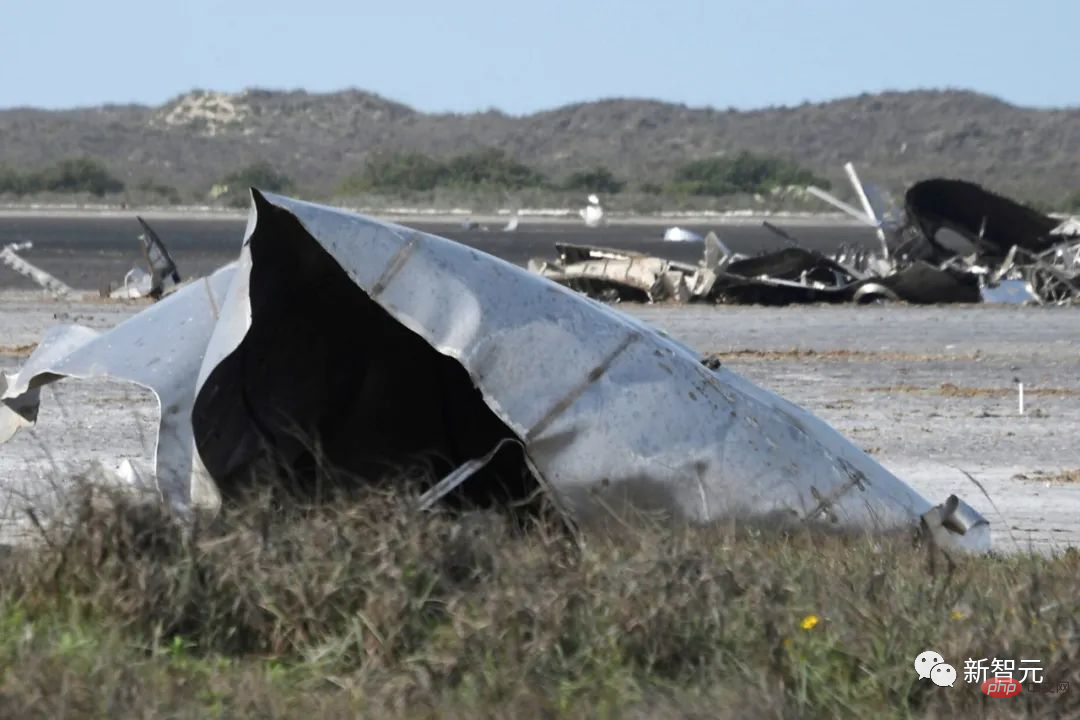
And in 2021, SN15 finally landed successfully.
SpaceX noted in a statement on its website that SN15 features "structural, avionics and software improvements" compared to previous Starship prototypes.
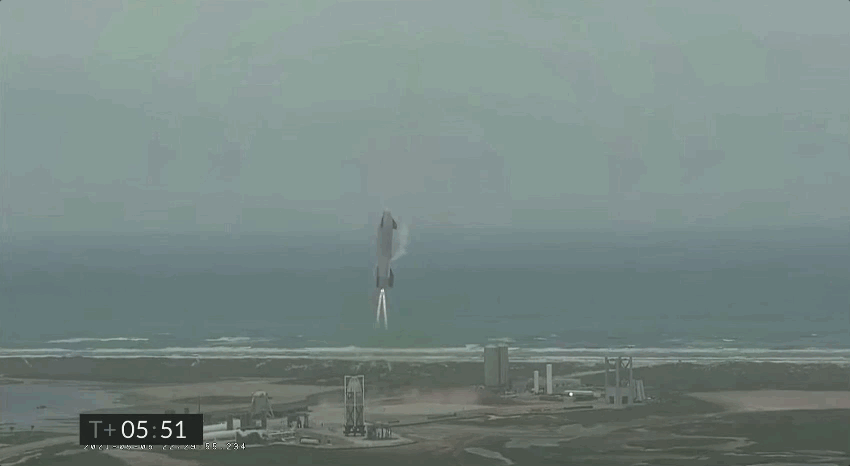
Musk excitedly tweeted after landing (nominal is a space industry term used to mean things went as planned hour).

So, let us be more patient and wait for the day of 4.20.
The above is the detailed content of Musk dreams of Mars! 'Starship' stopped 40 seconds into its first flight. A sudden pressure valve failure caused netizens to cry.. For more information, please follow other related articles on the PHP Chinese website!




